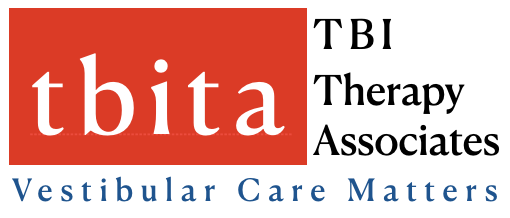.png)
DIZZINESS IN TBI
Barriers to VRT for patients with TBI
Many TBI patients do not routinely undergo comprehensive vestibular assessment and do not receive adequate vestibular therapy, and several factors contribute to this issue.
Traumatic Brain Injury (TBI) patients may often face challenges in expressing their vestibular symptoms to clinicians due to a combination of cognitive, communicative, and sensory factors associated with the injury. Lack of reporting can lead to inadequate care for vestibular issues.
Both patients and healthcare professionals may lack awareness of vestibular issues in TBI and the benefits of vestibular rehabilitation therapy (VRT). This lack of awareness can result in fewer referrals and missed opportunities for effective treatment.
The shortage of specialists trained in vestibular rehabilitation can lead to delays or gaps in treatment for TBI patients experiencing dizziness. Additionally, geographic barriers can further restrict access, particularly for patients in rural or underserved areas.
The absence of standardised treatment protocols for vestibular disorders in TBI patients often results in inconsistent care and variable outcomes. Regular follow-up is crucial for adapting treatment plans and monitoring progress, yet it is frequently insufficient in the management of these disorders.
Traveling to see a specialist can significantly aggravate vestibular symptoms including travel /motion sickness in TBI patients, which may hinder their participation in treatment.
